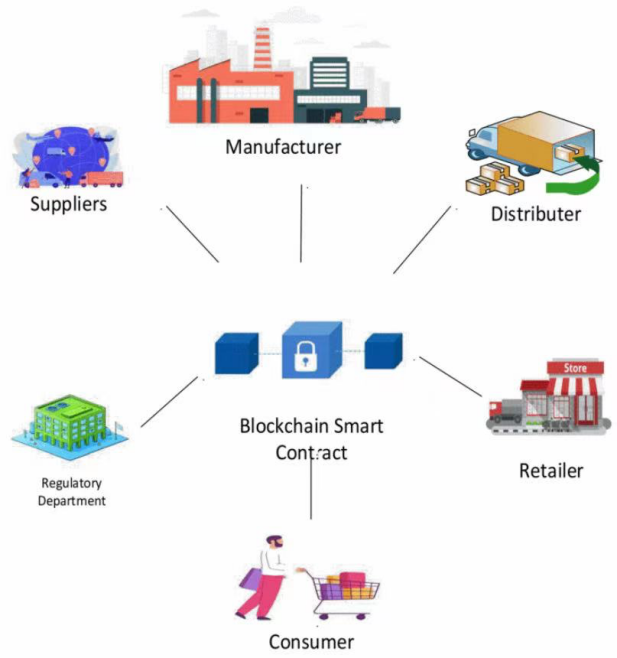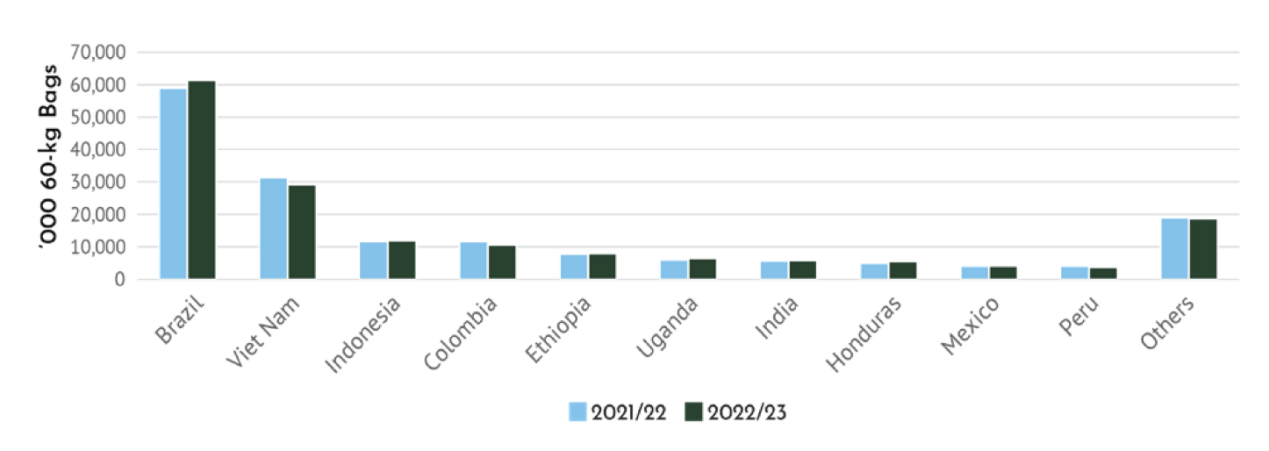

Volume 177
Published on May 2025Volume title: Proceedings of the 3rd International Conference on Management Research and Economic Development
With the development of the national economy and the improvement of resident’s the consumption levels, the leisure food market is experiencing rapid growth, and spicy leisure foods have gradually become a part of consumers' daily lives. As a leading company in spicy leisure foods, how Weilong Food maintains its market leadership through effective marketing strategies amidst fierce market competition and evolving consumer demands is a significant topic worthy of research. This study aims to analyze Weilong Food’s marketing strategies and their effectiveness, exploring how it enhances brand awareness and expands market share through precise positioning, multi-channel sales, and cross-industry cooperations. By employing data collection methods and integrating the SPT model and 4P theory, this paper systematically analyzes Weilong's marketing status and brand innovation strategies. The research indicates that Weilong has successfully attracted a large number of young consumers through accurate market positioning and has continuously increased brand awareness and market share through multi-channel sales and cross-industry collaborations. However, Weilong also faces challenges from market competition and the diversification of consumer demands, necessitating continuous innovation in marketing strategies and product quality improvements. This study provides valuable insights for the marketing strategies of other leisure food brands.

 View pdf
View pdf


With the advancement of global sustainable development strategies, green finance has become a core driver of economic transformation and upgrading, and the development of environmental, social and governance (ESG) investment concepts has challenged traditional asset pricing models. Increasing investor attention to ESG factors has led to a shift in investment decision logic from single financial returns to multi-dimensional sustainability assessments. By combing the existing literature, this article discusses the transformation of investor behavior and the limitations of the CAPM and Fama French five-factor model in the context of green finance. The study shows that companies with good ESG performance receive higher market recognition and lower financing costs, while the CAPM model fails to fully explain asset returns because it does not incorporate ESG factors and investor sentiment. And although the Fama-French five-factor model has some explanatory power, it does not cover ESG dimensions, and some of the factors perform redundantly in the A-share market. However, after adding ESG factor, the performance of the model is improved, especially in the grouping of small capitalization and value stocks. Therefore, in the context of green finance, investor behavior presents ESG integration and sentiment-driven features, which challenge the validity of traditional pricing models.

 View pdf
View pdf


In the contemporary social context, the phenomenon of game recharge has burgeoned, emerging as a prevalent consumption channel for a vast number of individuals. People from various walks of life, especially those with different age characteristics, show marked disparities in their game recharge expenditures. This article undertakes an in-depth exploration. By applying sophisticated probability and statistical methods, such as large-scale data sampling and meticulous data analysis, it firmly establishes that there are indeed specific and distinguishable differences in game recharge behaviors among different age brackets. Subsequently, the article elaborates on these differences, taking into account aspects like income levels, gaming preferences, and the psychological needs of different age groups. Comprehending these differences is of utmost importance for the sustainable development and accurate market positioning of the game industry, allowing it to better satisfy the diverse needs of consumers.This study can provide objective data for related research and help different gamers to understand their consumption behavior more deeply.

 View pdf
View pdf


The legitimate expectation principle, as an important legal principle developed in the practice of international investment arbitration, originated from the concept of reliance protection in domestic administrative law of countries like the UK and the US. Currently, in investment arbitration, more and more arbitration tribunals regard the legitimate expectation principle as one of the significant considerations for interpreting the fair and equitable treatment clauses. However, due to the ambiguity of the principle itself, there is still no unified interpretation and regulation on the application requirements of this principle in the academic circle and practice. Therefore, this paper studies the legal basis of the legitimate expectation principle in domestic and international law, discusses the advantages of its application, compares various academic viewpoints, and finally proposes three core application requirements of this principle. The intention is to establish a standardized criterion for the determination of reasonable expectation, narrow the differences in the application of the principle by arbitration tribunals, achieve the legal unity and practical coordination of it, thereby limiting the arbitration tribunal's discretionary power, balancing the interests between investors and host countries, and promoting the good development of international investment rule of law.

 View pdf
View pdf


Under the rapid development of the digital economy, the platform economy has become an important engine for global economic growth. As an important indicator to measure the scale of platform enterprises, the improvement of enterprise performance is significantly affected by the platform governance model. However, there is a lack of systematic analysis on how different governance methods affect the performance of platform enterprises. Therefore, this paper focuses on three main governance models in the platform economy, namely, independent governance, market governance, and platform governance, and deeply analyzes their impact on enterprise performance. This paper adopts the literature review method, systematically reviews the relevant literature of platform governance models, and sorts out the theoretical basis, advantages, and disadvantages of the three governance models and how they affect enterprise performance. In addition, this paper selects a representative typical platform enterprise as a case to deeply analyze the practical application effect of different governance models and their impact on enterprise performance. The results show that independent governance significantly improves corporate performance through the decentralization of decision-making power and governance. Although market governance reduces the transaction cost of enterprises, it is limited by the ability of enterprises to control the quality of transactions and has a relatively limited role in promoting the performance of enterprises. Platform governance has a positive impact on enterprise performance through incentive mechanisms and transparency rules.

 View pdf
View pdf


This paper analyses the issues of labour rights protection in global supply chains, exploring the current situation, problems, and solutions. It begins by presenting global labour mobility data and the current state of labour protection, noting that many countries, despite signing the International Labour Charter, face challenges in its implementation. The study reveals the severity of labour rights violations in global supply chains and their impact on individuals and society. Furthermore, it examines the problems and causes of labour rights protection from the perspectives of host countries, home countries, and companies. The research emphasizes the importance of protecting labour rights for global economic sustainability and calls for joint efforts to improve the situation. By addressing these issues, the paper aims to contribute to the development of more effective protection mechanisms and promote fair and sustainable practices across global supply chains. It also highlights the need for enhanced cooperation among governments, international organizations, and businesses to establish robust legal frameworks and enforcement mechanisms. The study suggests that through comprehensive reforms and a commitment to ethical practices, stakeholders can work together to create a more equitable global economy where labour rights are respected and protected.

 View pdf
View pdf



Given the state of technical advancement in modern society, blockchain technology has obvious potential in improving the transparency and efficiency of agricultural product supply chains. However, its high cost greatly influence enterprise strategy choices and adoption. Additionally, the agricultural supply chain faces several challenges, including asymmetric information, difficulties in traceability, complicated circulation links and high cost. This study explores how the deployment cost of blockchain affects the strategic choice of enterprises and to build a basic theoretical analysis framework. Also, the study analyzes the dynamic impact of blockchain technology cost on the strategic choices of agricultural supply chain by studying the case of Carrefour agricultural supply chain. The research concludes that the cost structure of blockchain technology directly drives enterprises to adopt the gradual strategy of "pilot → expansion → ecology". With the promotion of strategy, enterprises further mitigate the technology cost through large-scale application and ecological synergy, forming a positive cycle of "technology investment → strategy upgrade → cost optimization → larger-scale investment".

 View pdf
View pdf



Brazil, one of the world's largest coffee producers, experienced volatility in 2024 due to issues such as changes in coffee prices and climate. This paper analyzes the factors influencing the changes in the Brazilian coffee market through literature analysis and qualitative analysis based on the overall situation of the Brazilian coffee industry in 2024 in terms of prices, export markets, and the impact of extreme weather on the quality and quantity of coffee. Brazilian coffee prices have risen due to global supply shortages and growing demand. Meanwhile, Brazilian coffee exports to the U.S., European, and Asian markets continue to grow strongly, especially for premium and specialty coffees. The Brazilian coffee industry in general remains a major player in the global coffee supply chain and is highly competitive. However, the global economic situation and climate uncertainty and increasing production costs add some risks to the future development of the Brazilian coffee industry.

 View pdf
View pdf


In recent years, specialized, sophisticated, distinctive, and innovative (SSDI) small and medium-sized enterprises (SMEs) have attracted widespread attention from both the government and various sectors of society. However, these SMEs face financing constraints due to inherent characteristics such as small scale, low profitability, and difficulty in credit assessment, which hinder their growth. Based on the features of digital inclusive finance, this study identifies that digital inclusive finance can effectively address the financing challenges faced by SSDI SMEs by reducing information asymmetry, broadening financing channels, and expanding financial service coverage. Consequently, it enhances the efficiency of financial resource allocation and positively impacts the development of SSDI SMEs.

 View pdf
View pdf


In recent years, competition within the home appliance industry has increasingly focused on quality improvement. Market share acquisition is no longer solely dependent on product sales volume; instead, competition in areas such as human capital, resource management, and particularly intellectual capital has intensified significantly. Using Enterprise A's intellectual capital as the research object, this study applies the Value Added Intellectual Coefficient (VAIC) model to measure and evaluate the efficiency of its intellectual capital in value creation. It analyzes management-related issues concerning the intellectual capital of the enterprise and proposes corresponding strategies and recommendations.

 View pdf
View pdf




